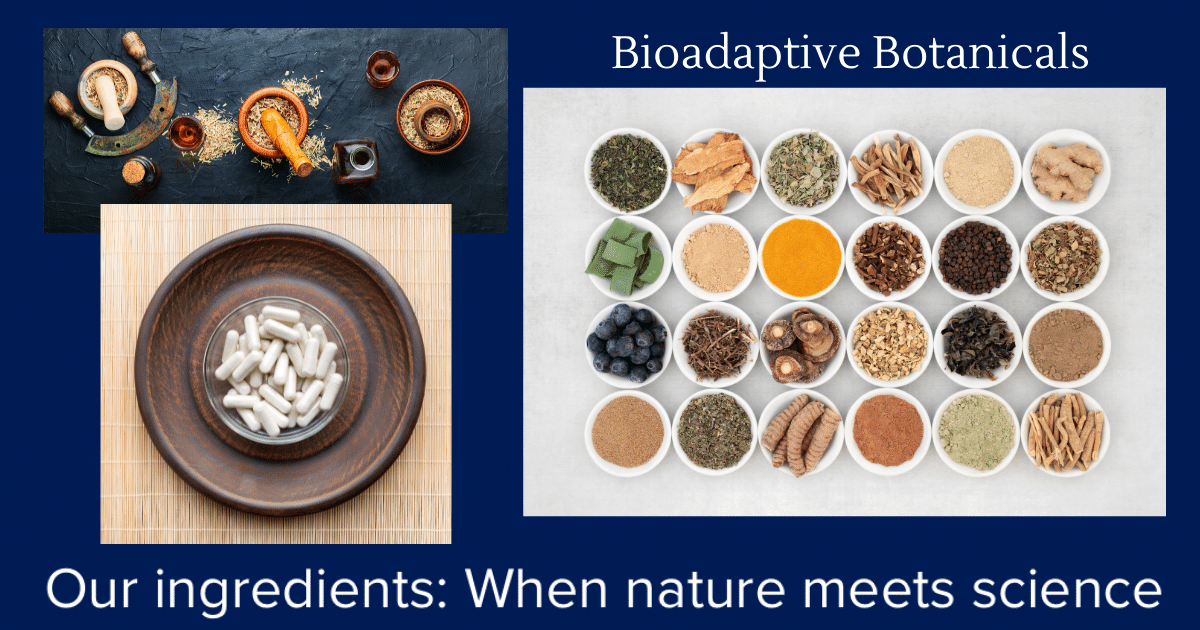WHAT ARE ADAPTOGENS OR BIOADAPTIVE PLANTS?
Adaptogens, most often found in food or supplements, are substances that help the body adapt to, or resist, varying types of stress—physical, emotional, environmental. These substances usually come from botanical sources. Adaptogens have three things in common, each
- is nontoxic
- reduces the body’s stress response
- supports overall health by helping your body achieve balance
Some of them aid in helping stave off fatigue, build endurance, or improve focus while others can help with feelings of relaxation or calmness.
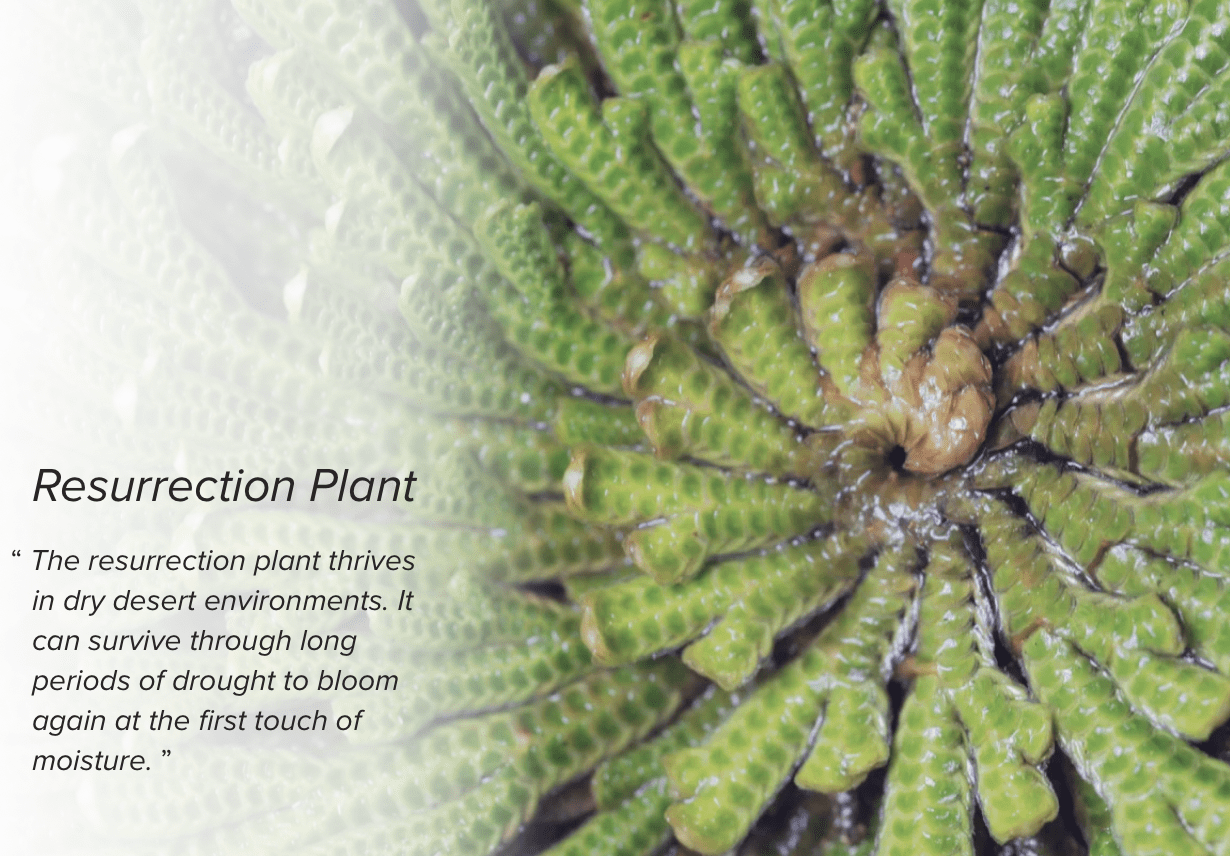
ADAPTOGENS IN SKINCARE
The skin is also exposed to an array of stressors. These stressors can cause the skin to exhibit signs of premature aging—more wrinkles, droopy/swollen skin, dyspigmentation/age spots to simply looking fatigued and less vibrant. Yet adaptogens, with their antioxidant-like capacity, can help skin resist these sources of oxidative stress offsetting the potential damage and helping it to find a balance.
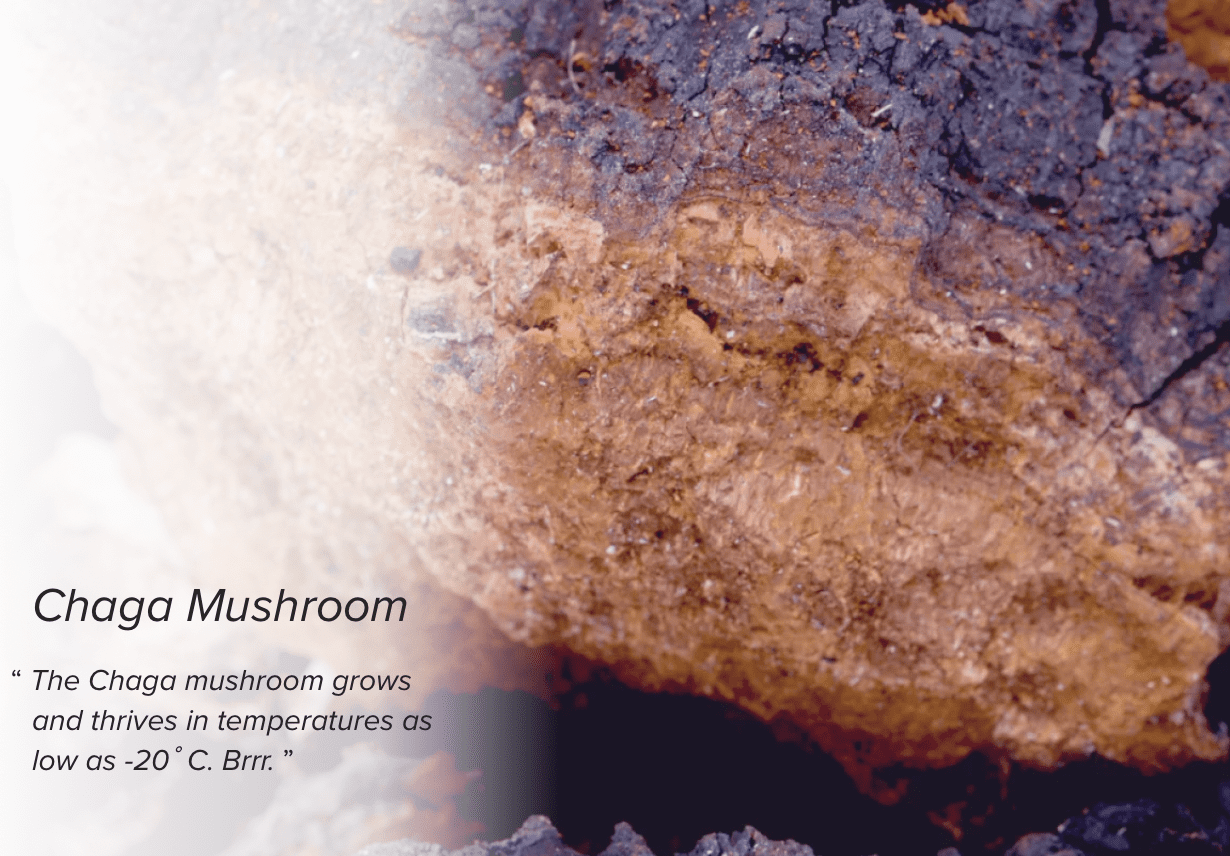
To illustrate this, research was conducted on three different formulas—a serum, cream and night mask—all formulated with adaptogens. Each was able to decrease the oxidative damage from UV exposure when compared to untreated sites.
Each of the formulas from this study contained the same blend of five different adaptogen extracts taken from plants that have adapted to their uniquely harsh environments in order to thrive. These extracts consisted of the Resurrection Plant (Selaginella Lepidophylla), the Chaga Mushroom (Inonotus Obliquus), the Maral Root (Rhaponticum Carthamoides), the Rhodiola Rosea (Arctic Root), and Siberian Ginseng (Acanthopanax Sentocosus) – their images appear in this article.
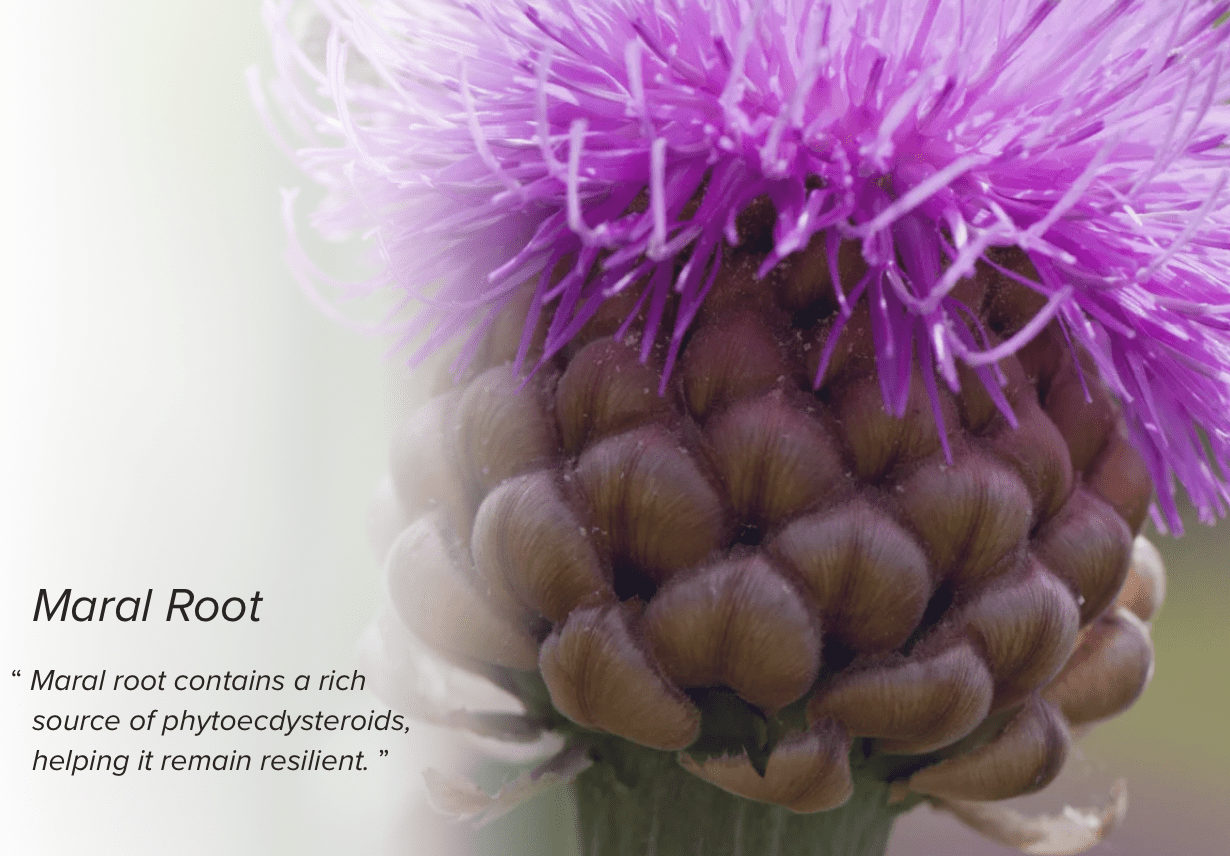
Resurrection Plant (Selaginella Lepidophylla) —springs back to life without damage after months—or even years—of extreme dehydration.
Chaga Mushroom (Inonotus Obliquus) —grows wild on trees in the polar deserts and tundras of Canada, Alaska, and Russia.
Maral Root (Rhaponticum Carthamoides) —flourishes in high alpine meadows that are often an inhospitable 4,500–6,000 ft above sea level.
Rhodiola Rosea (Arctic Root)—survives year-round in wild arctic areas and high altitudes where the oxygen is thin, and the temperatures can dip as low as -40°C.
Siberian Ginseng (Acanthopanax Sentocosus) —thrives in mountain forests and all kinds of soils, including sandy, loamy, and heavy clay soils with acid, neutral, or alkaline chemistry and soils of low nutritional value.
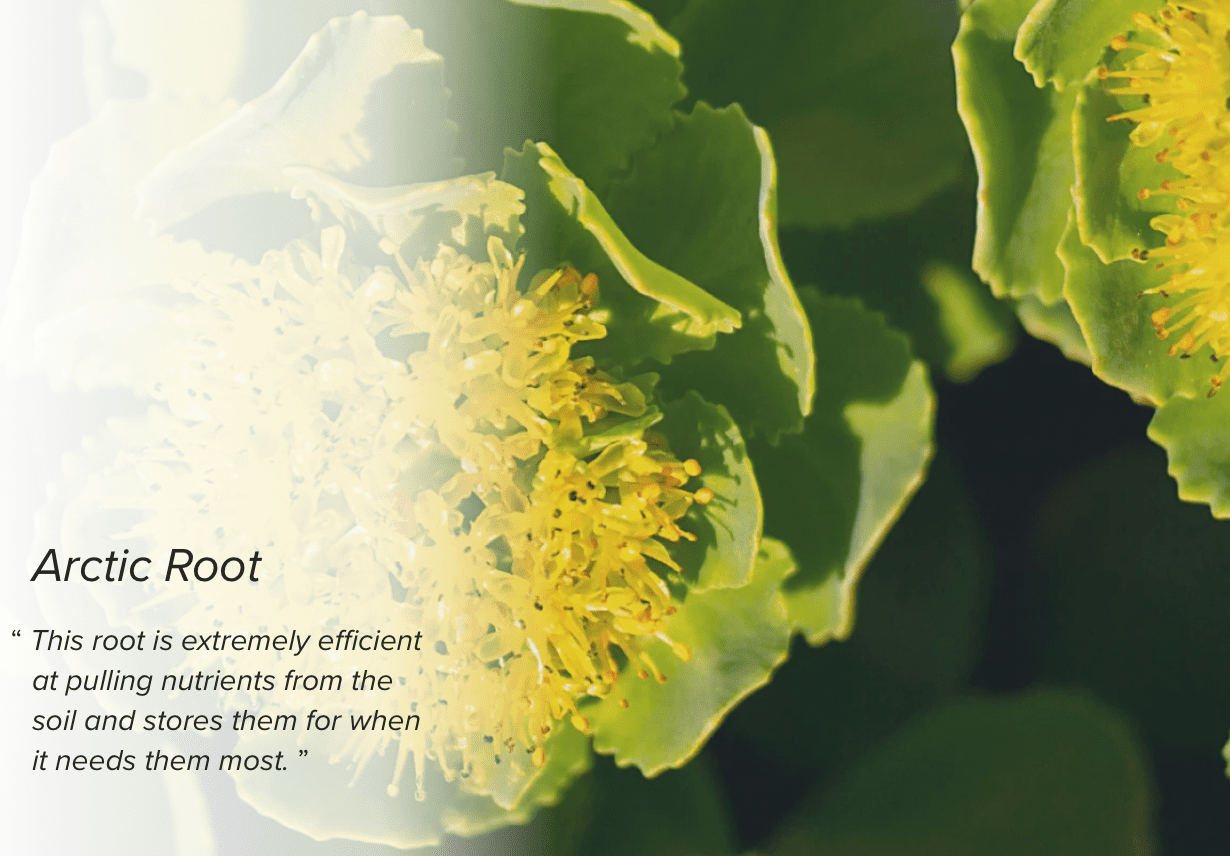
These special properties allow the plants to survive in their severe climates and environments and can help skin adapt to its changing and unique situations.
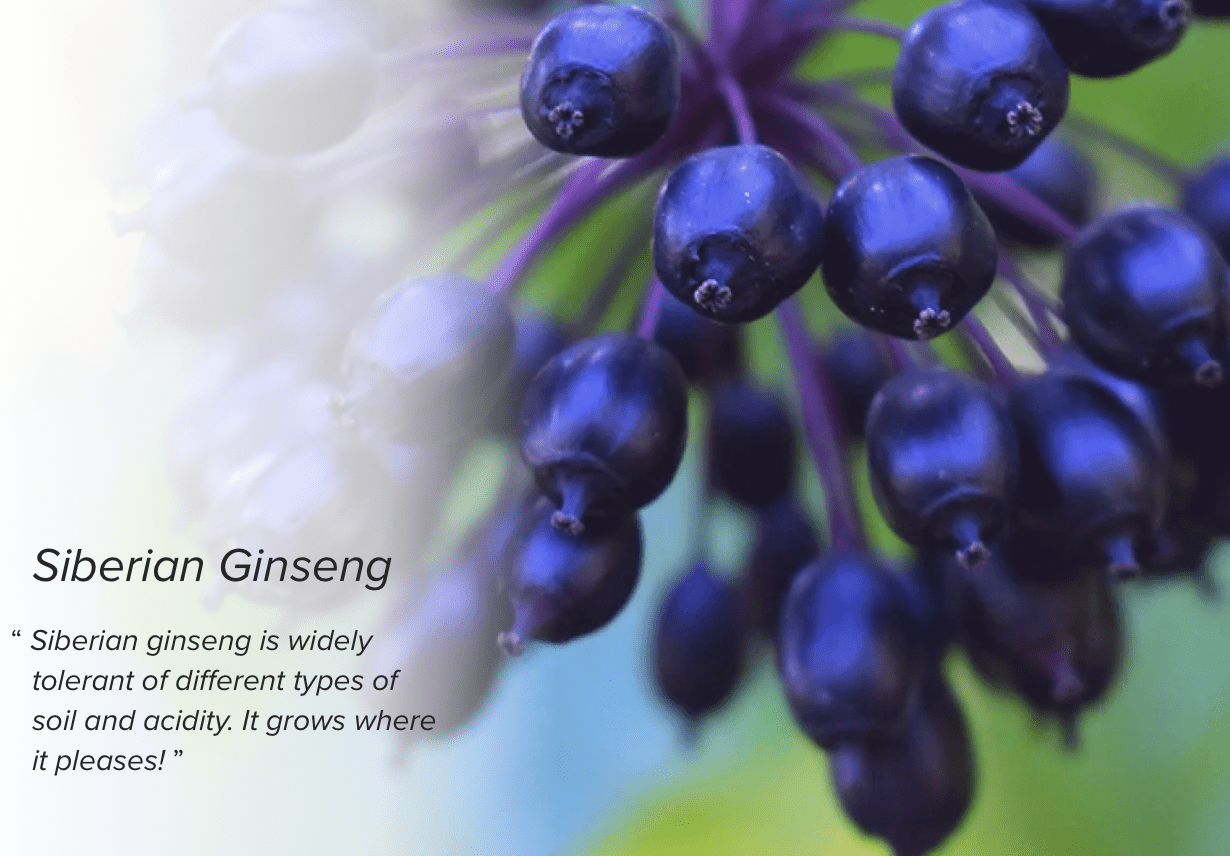
While adaptogens have been used historically in diet to promote overall wellbeing, the unique benefits of this ingredient classification can be extended to topical applications as well. Topical applications of adaptogens can help the skin adapt more efficiently to different stresses. Offsetting stress and subsequent damage can then help skin maintain its youthful beauty and health.
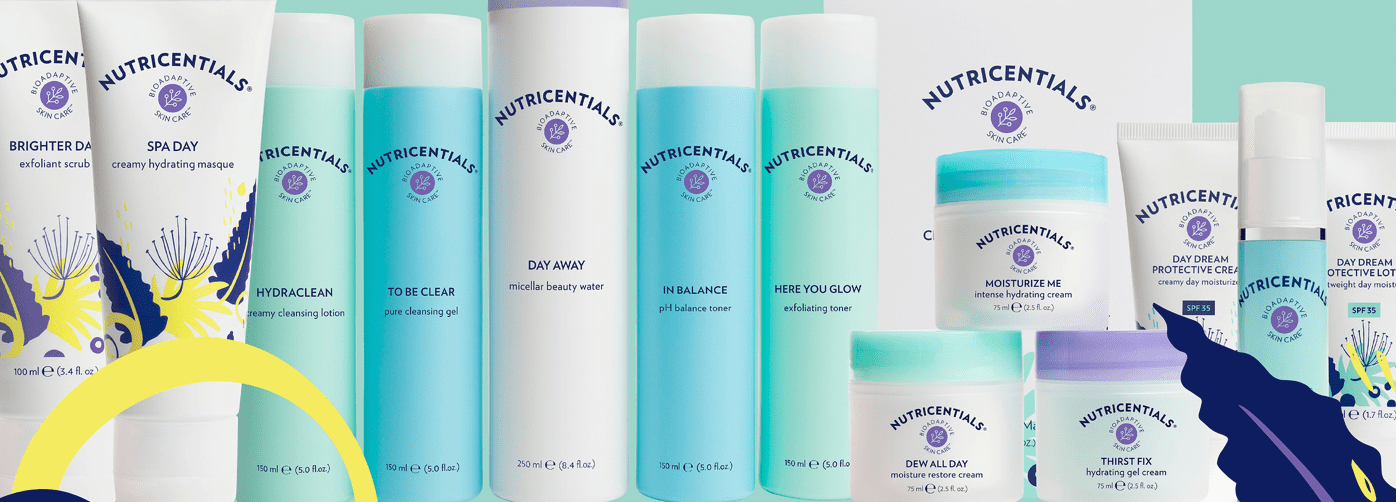
A FINAL NOTE ABOUT ADAPTOGENS IN SKINCARE
Not all adaptogens are extremophiles—found living in extreme environmental conditions. Cacao Seed Extract, another example of an adaptogen, can provide skin benefits topically. This unique extract from non-fermented cocoa seeds is rich in peptides and was developed to help protect skin from free radicals (oxidative stressors) and environmental stressors, such as the effects of blue light exposure. Blue light exposure can come from computers, smart phones, and tablets.
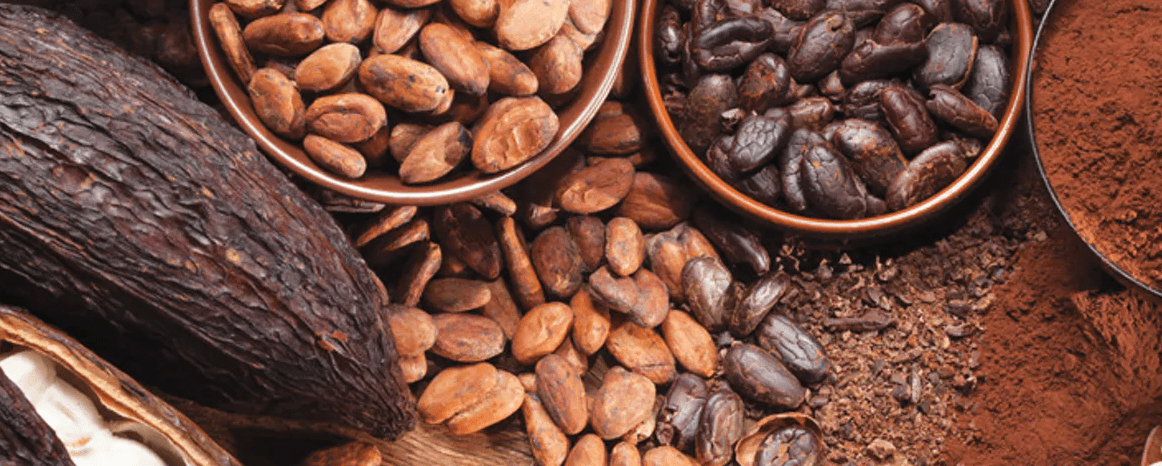
This unique adaptogen extract was evaluated on a gene expression panel to identify its ability to mitigate genes associated with stress compared to control. The results showed that this extract was able to regulate genes associated with stress in the skin.
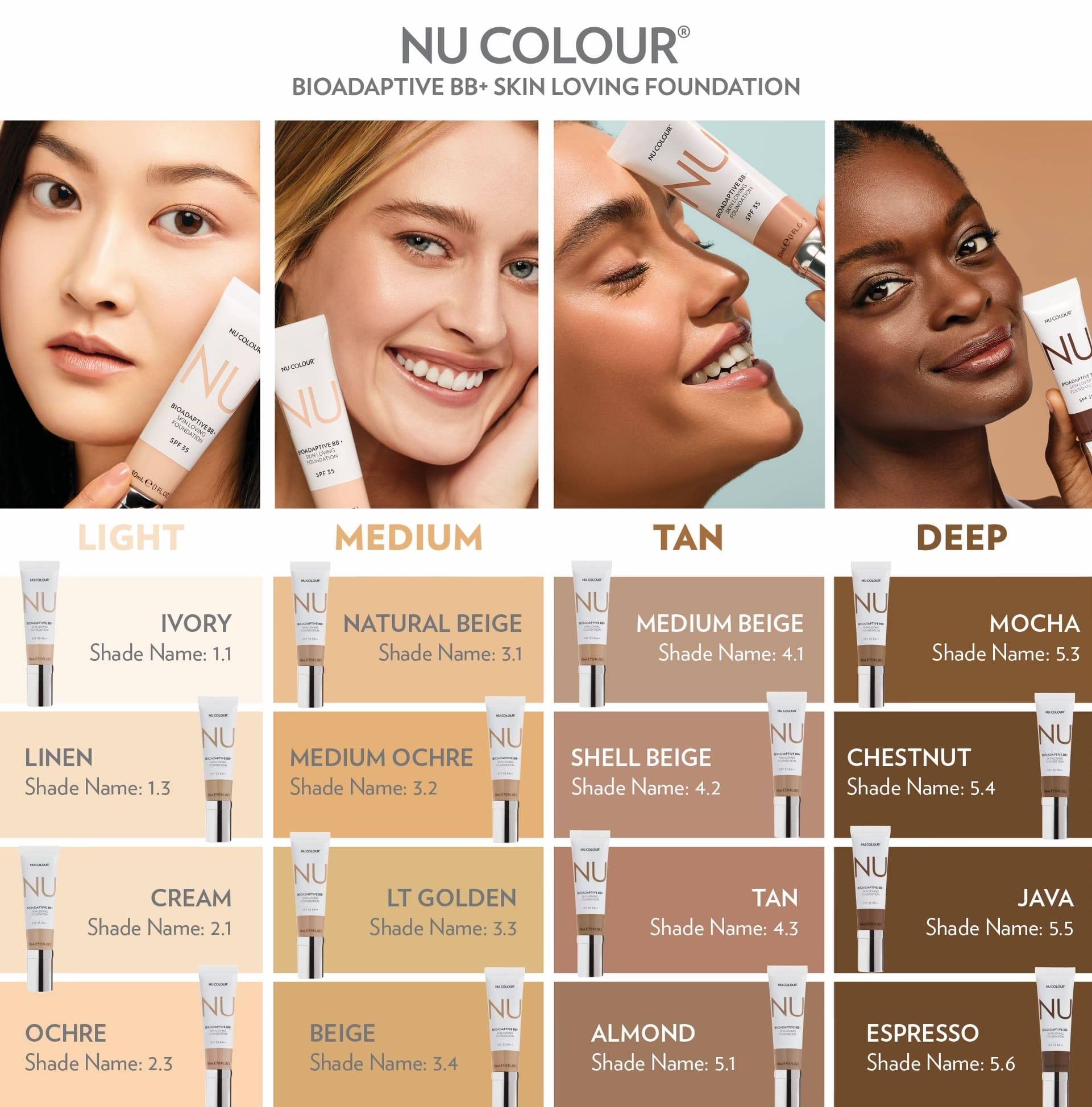
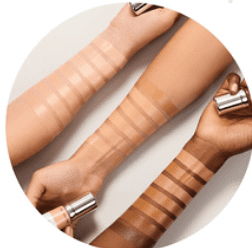
LINKS
Watch the Resurrection Plant in action!
Get your Nuricentials here!
Get your Bioadaptive BB+ Foundation here!
Nutricentials Blue Light Protection Science Demo
Nu Colour Bioadaptive BB+ Skin Loving Foundation Product Training & Tips

